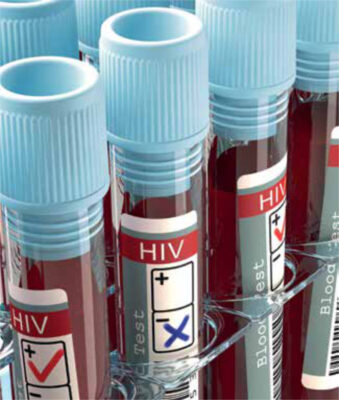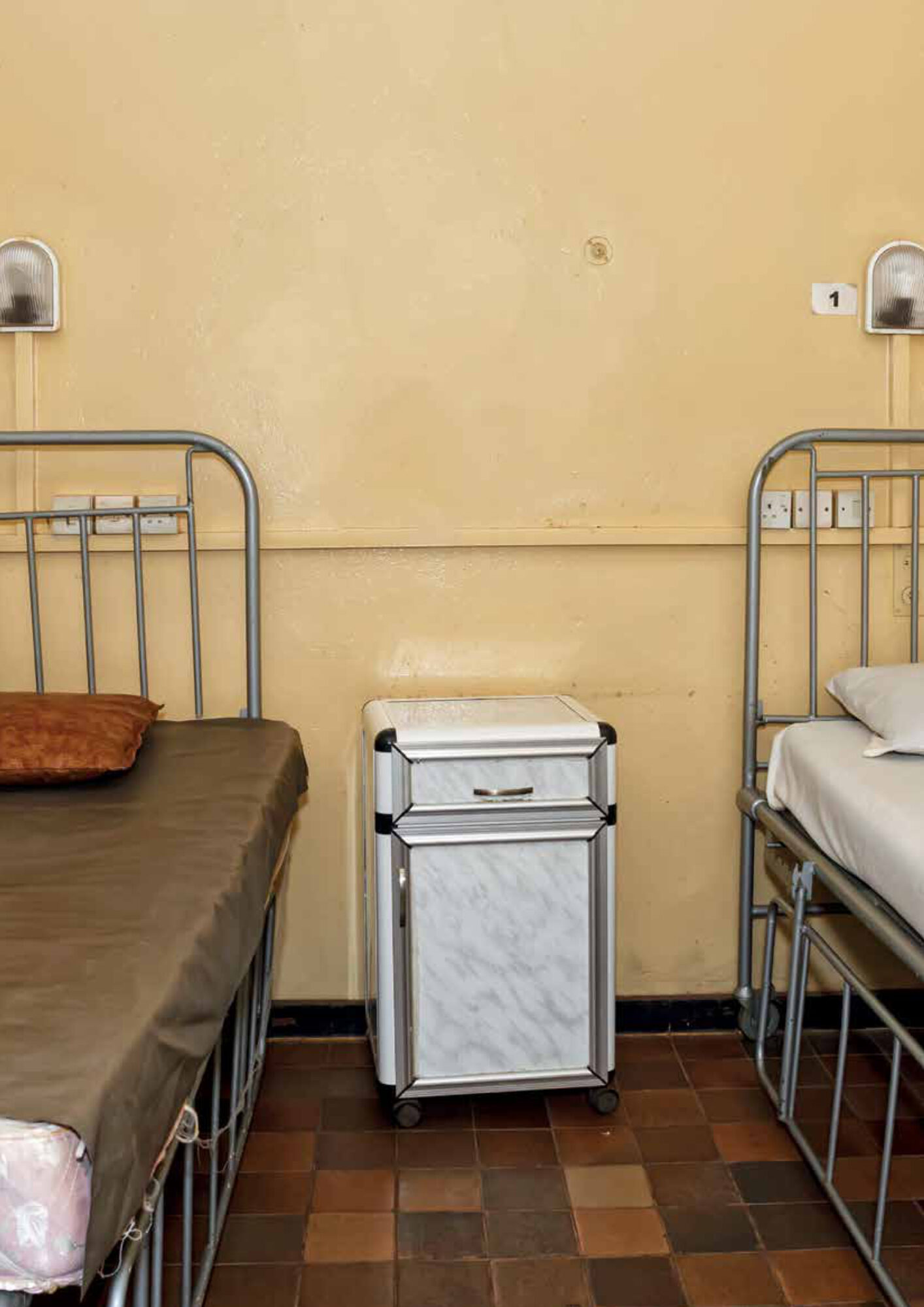Main content
An introduction based on WHO guidelines
When you realize that core values like fairness, responsibility or autonomy are central themes in ethics, its importance in global health becomes clear. These are concepts that play a role in ethics in general, in health ethics in particular, but they have special aspects when reflecting on global health. What is ethics in global health exactly? Why is it important? And what is the practical use of ethics for physicians, public health workers or policy makers? The World Health Organization (WHO) published guidelines on this topic, and this article will give an introduction to ethics in global health based on these guidelines.
What is right or wrong?
Before we dive into the practical ethical dilemmas in global health, we need to understand the definition and some background of ethics in general. Ethics can be defined as ‘the branch of knowledge that deals with the moral principles that govern a person’s behaviour or the conducting of an activity’. These moral principles can be based on very different world views or philosophies, which in turn can lead to very different understandings of what are right or wrong behaviours or activities.
Throughout history, several philosophical visions have been described, four of which I will briefly mention. [2] Box I shows different visions and the questions they ask when reflecting on right and wrong. Utilitarianism pays attention to the consequences of an act, and defines what is right by the greatest happiness for the greatest number. It is not about personal happiness, but the positive consequences for most people. Deontology does not primarily consider the consequences of an act, but the normative principles – what should be done are leading. In a way, the first two views work in different directions: utilitarianism defines what is right according to the outcome (most happiness), deontology defines what is right based on the starting point (moral duty). Whereas deontology is based on overall, general moral principles, the third view, liberal individualism, focuses on the principles or rights of the individual. Every individual has his or her own rights, defining what is right or wrong. On the other end of this spectrum, we find communitarianism. This idea emphasizes that not only individuals have rights but also communities. This idea highly values social practices, and what is best for the community is leading in defining right or wrong.
These philosophical ideas can easily be translated to ethics in healthcare, for example when judging the introduction of a new treatment. Does it increase health for most people, or only serve a minority? Is it our moral duty to treat those patients? Do the patients have a right to receive this treatment? Does treating these patients serve society?
| Different philosophical theories, and the questions they ask to define what is right or wrong. Utilitarianism: what are the consequences? |
Health ethics
Health Ethics is a broad field that focuses on ethical dilemmas not only in healthcare but also in health policy and health research. [3] Health ethics tries to understand the values that play a role in actions and decisions in these areas, some common examples of which are autonomy, fairness, compassion, honesty, freedom and trust. Ethics is often complementary to the law; a law may require people to do what is ethically right, but of course something may be legal and still be wrong from an ethical point of view.
Ethics in public health and clinical care
If we consider the values mentioned above and the different possible underlying views from Box 1, it becomes clear that healthcare is full of potential ethical dilemmas. A broad distinction in healthcare is public health versus clinical care, which introduces a major ethical dilemma. Public health focuses more on prevention of disease, which may be the best thing to do when looking at the most health for the most people. But when resources are scarce, paying more attention to prevention may take away needed resources from treatment. [3] For example, treating HIV-infected people with antiretroviral therapy may significantly prevent transmission of the disease, but does this justify treating patients that do not (yet) benefit from treatment themselves? And may this strategy take priority over treating patients that already suffer from the disease? Non-communicable diseases also pose difficult dilemmas. These diseases are often the result of people’s unhealthy lifestyle, but to what extent do governments have the right or the moral obligation to change such behaviour, for example by imposing taxes on alcohol, smoking, or sugar?
A final and very practical ethical dilemma that physicians face on a daily basis is the issue of informed consent. How much information about a treatment should be given to a patient? When, if ever, should a physician’s professional opinion take precedence over a patient’s right to make a voluntary and free decision to accept or reject treatment?[3] The relevance of this topic is clearly demonstrated in the letter from the tropics further in this issue, which is full of practical examples and written by two doctors in tropical medicine.
Ethics in medical research
Most people are familiar with the ethical issues involved in medical research, in terms of protecting the rights of participants in clinical trials. But there are many more questions to be asked. Who benefits from the research? Particularly in global medical research, do wealthy researchers benefit most or local people participating in the study? What level of care should be provided to participants in the control arm of a trial, especially if the quality of usual care in the setting is low?[3] Which specific topics are investigated? Only diseases or therapies that lead to potential commercial success?
Ethics in global health
Of course, all the issues mentioned above apply to global health. Still, there are some special ethical aspects involved when we take a global perspective. The big gap in health and health care between high-income and low- and middle-income countries is already a major ethical problem – a matter of injustice, inequality and compromised human rights. This is aggravated by the ‘brain drain’ of trained health professionals from low-resource settings to wealthier countries. What is the balance between individual free choice of relocation and the need to improve the health of the most vulnerable populations? [3] Another aspect of global health ethics is related to cultural relativity. For example, can female genital mutilation be right for certain cultural groups if it is in line with their beliefs, or should we stand up and protect these women and children?
How to handle ethics in practice?
Once you realize the importance of ethics in global health, you might wish for some practical guidance in handling all these dilemmas. The 2015 WHO guideline [3] ends with a section on three key strategies on practical ethics. First, philosophical theories (like those described in the first section of this article) may help in explaining an ethical issue and justifying one action over another. Next, ethics committees can be of great value, in clinical care as well as in research. Third, ethical decision-making frameworks can be developed for specific topics in order to provide guidance on how decisions ought to be made and by whom. One example is a guideline developed by the WHO on managing ethical issues in infectious disease outbreaks; see box 2.[4] Finally, the importance of engaging all different stakeholders is emphasized.
These ‘key strategies’ may be less easy to use in practice than hoped for, but ethical dilemmas are not easy questions, and they should never be solved by easy answers. Asking the right questions and trying to understand the underlying values of all the people involved (including yourself) may bring you a bit closer to an answer.
| Ethical framework: example of infectious disease outbreaks As a result of the ethical issues that arose during the Ebola outbreak in West Africa in 2014-2016, the WHO wrote a comprehensive guideline, or ethical framework, about managing ethics in disease outbreaks. [4] The framework discusses 14 specific topics, addressing key issues in outbreak management such as involving the local community, public health surveillance, rapid data sharing, emergency use of unproven interventions and the restriction of freedom of movement. Each topic starts with key ethical question, followed by the issues that should be considered when answering these questions. For example, consider the question ‘Under what circumstances is it legitimate to restrict an individual’s freedom of movement during an infectious disease outbreak?’ The following aspects should be carefully considered when looking for an answer: justifiable grounds, based on the best available evidence; least restrictive means; costs; ensuring humane conditions; addressing financial and social consequences; due process protections (providing mechanisms for individuals to challenge the appropriateness of their restrictions); equitable application; communication and transparency. By structuring all the main topics in outbreak management and their ethical considerations, this guideline provides useful guidance for all professionals involved in infectious disease outbreak planning in all sectors. |
Who guidelines on ethical issues in public health surveillance (2017)
- Ethical issues in patient safety research: interpreting existing guidance (2013)
- Standards and operational guidance for ethics review of health-related research with human participants (2011)
- Guidance on ethics of tuberculosis prevention, care and control (2010)
- Basic principles for treatment and psychosocial support of drug dependent people living with HIV/AIDS (2006)
- Guidance on ethics and equitable access to HIV treatment and care (2004)
HTTP://WWW.WHO.INT/ETHICS/PUBLICATIONS/YEAR/EN/

References
- Oxford dictionary
- Douma J, Medische Ethiek (1997), p 60-76
- World Health Organization (2015), Global Health Ethics: Key Issues. Available from http://www.who.int/ethics/publications/year/en/, access date 01-08-2018
- World Health Organization (2016), Guidance For Managing Ethical Issues In Infectious Disease Outbreaks. Available from, access date 01-08-2018



















































